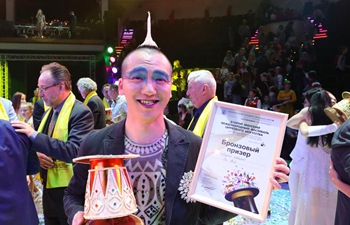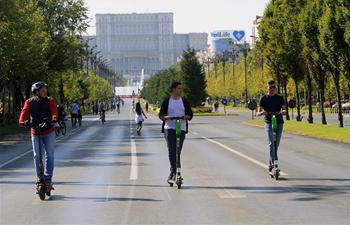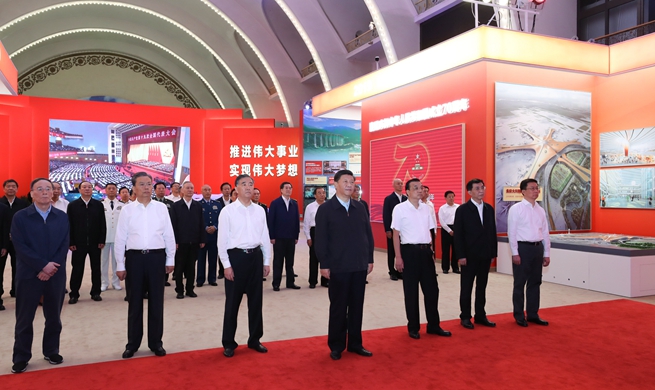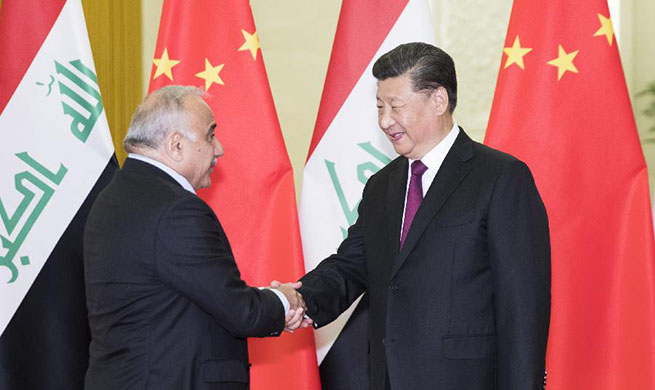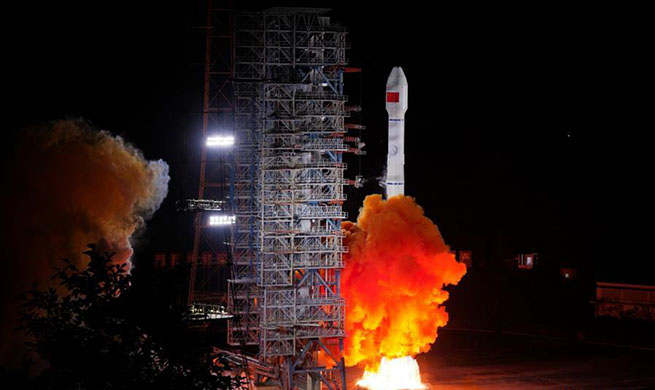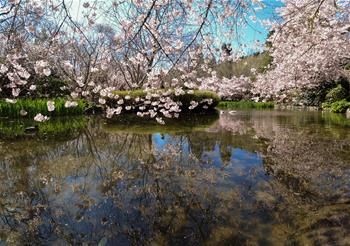TOKYO, Sept. 24 (Xinhua) -- "China's development over the past 70 years has been down-to-earth," former Japanese prime minister Yasuo Fukuda told Xinhua in a recent interview, ahead of the 70th anniversary of the founding of the People's Republic of China.
In 1980, Fukuda visited China when he was secretary to his father, former prime minister Takeo Fukuda. Recalling the experience, Fukuda said it was still vivid in his mind.
"I had a strong curiosity at that time. China had not yet entered the stage of rapid economic development. My first impression was that there were many people and many bicycles. The street in front of Tiananmen Square was full of bicycles and filled with vitality. I went to Beijing, Xi'an and Shanghai," the 83-year-old politician recalled.
Since then, he has made many trips to China. "China's development over the past 70 years has been down-to-earth. In particular, since the reform and opening up, with strong capability to learn and draw on experiences, China explored the development path based on its own national conditions, implemented a socialist market economy, integrated with the world economy, and has been constantly improving in terms of talent, finance, and investment, among others. When I revisited these cities later, I saw changes that were completely unimaginable," he said.
Fukuda said that with the rapid development of the economy, China has undergone great changes in various fields, "especially in terms of national living standards, education and so on."
"Although there is still a gap between the rich and the poor, as far as I know, China's smaller cities have also achieved great development," he said.
Speaking of the recent new developments in China, Fukuda said that during this year's Boao Forum for Asia annual conference, he pointed out that the Chinese economy is shifting from speed to quality.
For example, the "Shenzhen model" characterized by entrepreneurial innovation has drawn wide attention in the Japanese economic circle, he said. "In 1995, when I first went to Shenzhen, there was nothing there. Today, there are many high-rise buildings in Shenzhen, and startups are springing up, and Shenzhen is becoming a high-tech entrepreneurial city that is expected to compete with the Silicon Valley in the future."
Talking about China's efforts in fulfilling its international responsibilities, Fukuda said China is committed to supporting UN peacekeeping operations and sustainable development goals, among others.
He also agreed with China's idea of building a community with shared future for mankind. "People must be kind and help each other to survive. The same is true for countries. Only if we work together and share development results can the world be peaceful. In my opinion, building a community of shared future for mankind is also the same meaning. In diplomacy, we also need to build a new type of international relations based on this," he said.
On the new opportunities for future cooperation between China and Japan, Fukuda noted third-party markets and the Belt and Road Initiative.
The first China-Japan Third-Party Market Cooperation Forum was held in Beijing last year, Fukuda said, adding that at the forum, more than 50 cooperation agreements were reached between the two sides, with the total amount exceeding 18 billion U.S. dollars.
"To help other countries develop is an international responsibility for both China and Japan. I believe that China is seriously studying when and how it should help other countries, with such efforts shown in the Belt and Road Initiative," Fukuda said.



